Getting on a revolutionary gardening experience with our Coconut Coco Peat line, meticulously crafted to get rid of the harmful impurities, we created the Washed product line with Low EC and neutral pH. Our products are tailored specifically for hydroponic cultivation and formulated to thrive in diverse climates. Especially, we can do OEM/ODM according to the client’s request. Let’s get started to find out about Coco Peat:
What is Coco peat?
Coco peat, often called coir pith or coir dust, is a sponge-like substance derived from coconut husks that are removed during the coir fiber extraction process. Coir peat, known for its exceptional water retention and aeration capabilities, may hold up to 10 times its weight in water while providing adequate soil ventilation. It is pH-neutral and lightweight, making it easy to use and suited for a wide range of plants with varying pH preferences. Coir peat, which is renewable and biodegradable, is an environmentally beneficial soil addition that improves structure and moisture retention. Coir peat, which is commonly used in seed starting mixes and potting soils, helps to promote long-term and productive gardening.
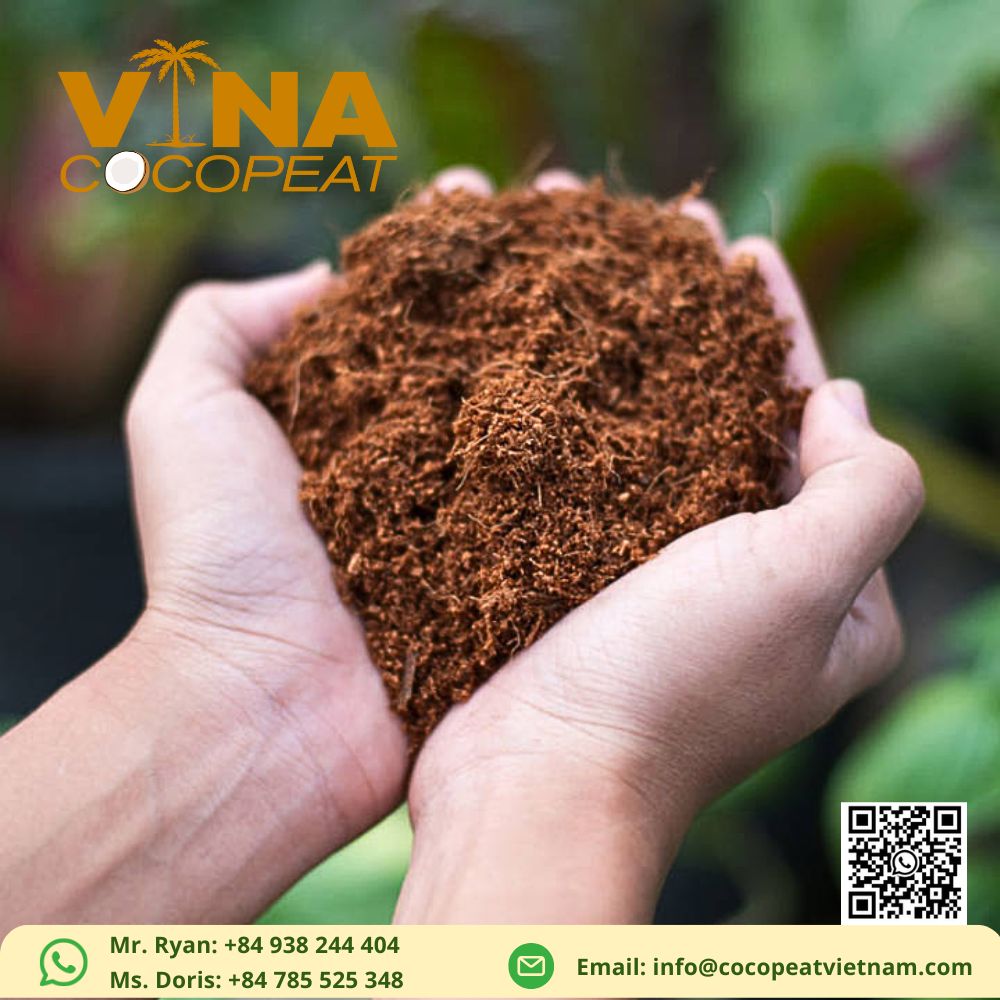
What is coco peat made of?
Coir peat is formed from the middle layer of coconut husks, often known as coir pith or coir dust. After separating the coir fiber from the husks, the leftover coir pith is processed, including washing and sieving, to produce coir peat. This fiber-rich substance is commonly compacted into blocks for ease of use. Coir peat is widely regarded as a desirable and sustainable substrate in agriculture and horticulture due to its water retention and aerating properties.
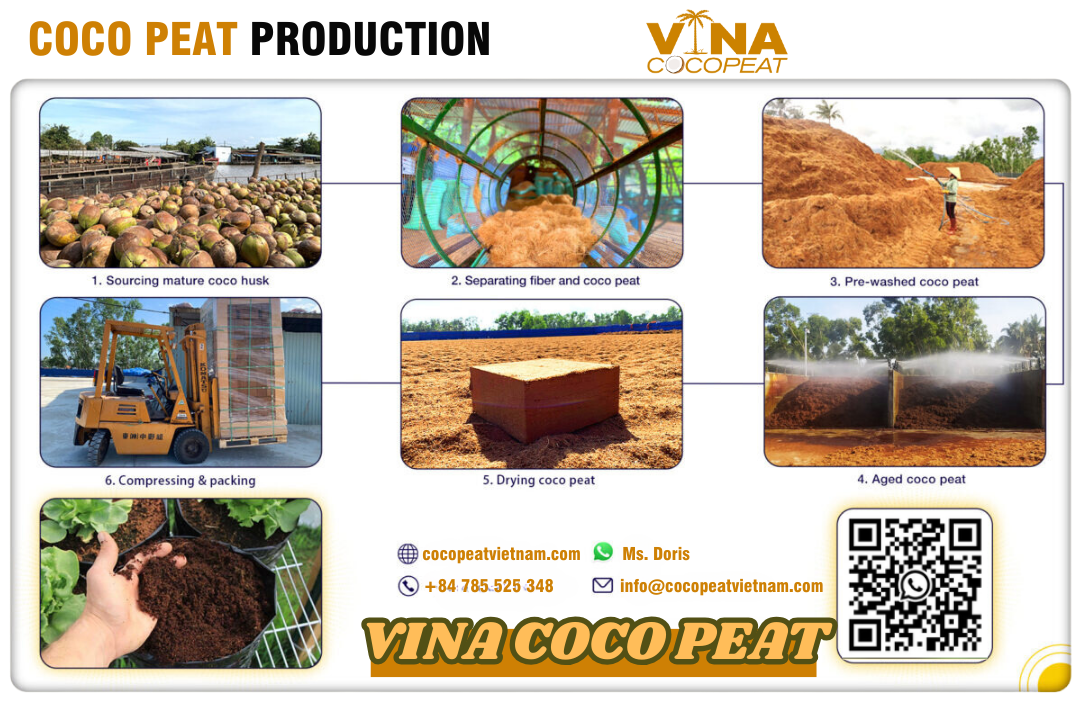
Is coco peat superior to compost?
The decision between coir and compost is determined by the plant’s individual requirements. Coir retains water and provides adequate aeration, making it ideal for moisture-sensitive plants. It is pH-neutral and renewable. Compost is nutrient dense, enhances soil structure, and promotes microbiological variety. Choosing between them is determined by criteria such as water requirements, nutritional requirements, and environmental concerns. Some backyard enthusiasts combine the two to get a more balanced approach.
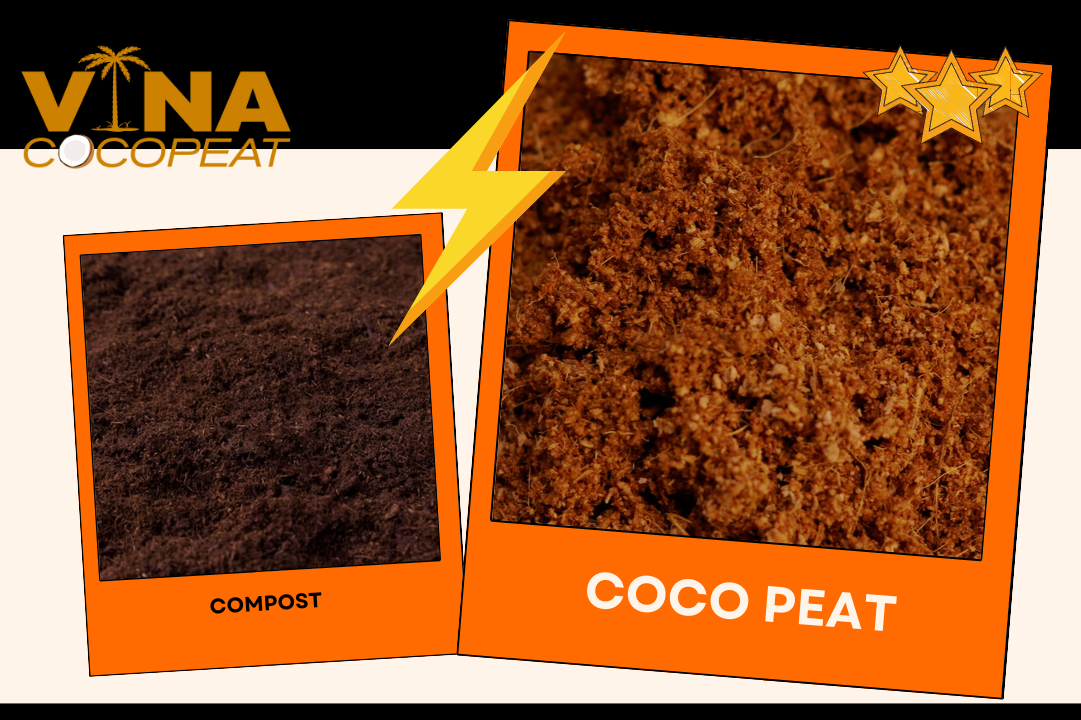
Is coco peat superior to potting soil?
The plant’s needs determine whether coir or potting soil should be used. Coir retains water and provides adequate aeration, making it ideal for moisture-sensitive plants. It has a pH of neutral and is sustainable. Potting soil replenishes nutrients and boosts soil structure, making it suitable for a variety of plant varieties. Gardeners frequently employ a combination or pick based on unique plant needs.
Many kinds of Coco Peat products
1.Coco peat Low EC: Coco peat, or coconut peat, is a lightweight and porous growing medium made from coconut fibers. It is used in hydroponics because of its low electrical conductivity (EC), which indicates low salt content. This feature is critical because it avoids soil salt accumulation, ensuring accurate fertilizer control and excellent plant growth in hydroponic systems.
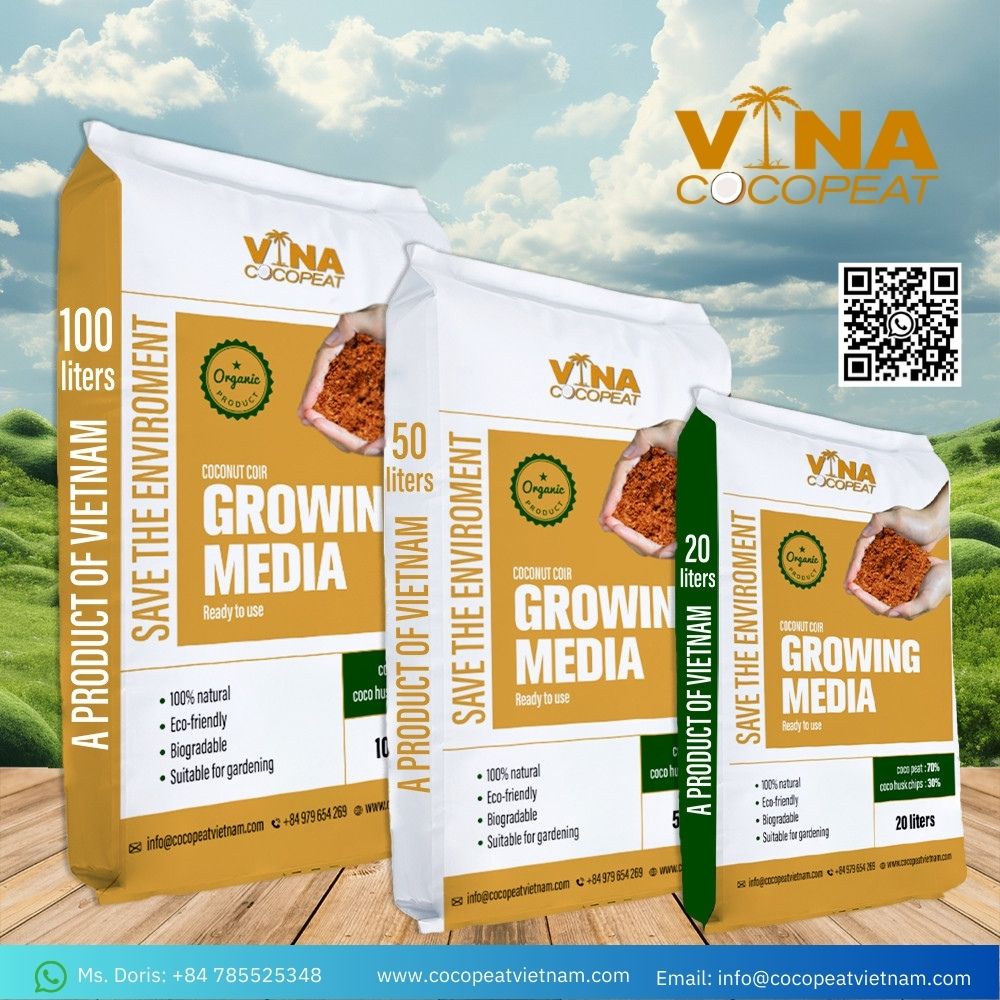
2. Coco Peat Brick: Coco peat brick, sometimes called coconut coir brick or coir block, is a compacted block of coconut fibers. Coconut coir is a fibrous fiber found between a coconut’s hard interior shell and its outer covering. It is a natural, renewable resource. Coir peat bricks are made by compressing and dehydrating coconut coir fibers into a dense block. These bricks are useful in horticulture and gardening for a variety of applications, including growth medium and soil amendment. They are commonly utilized as a more sustainable alternative to regular peat moss.
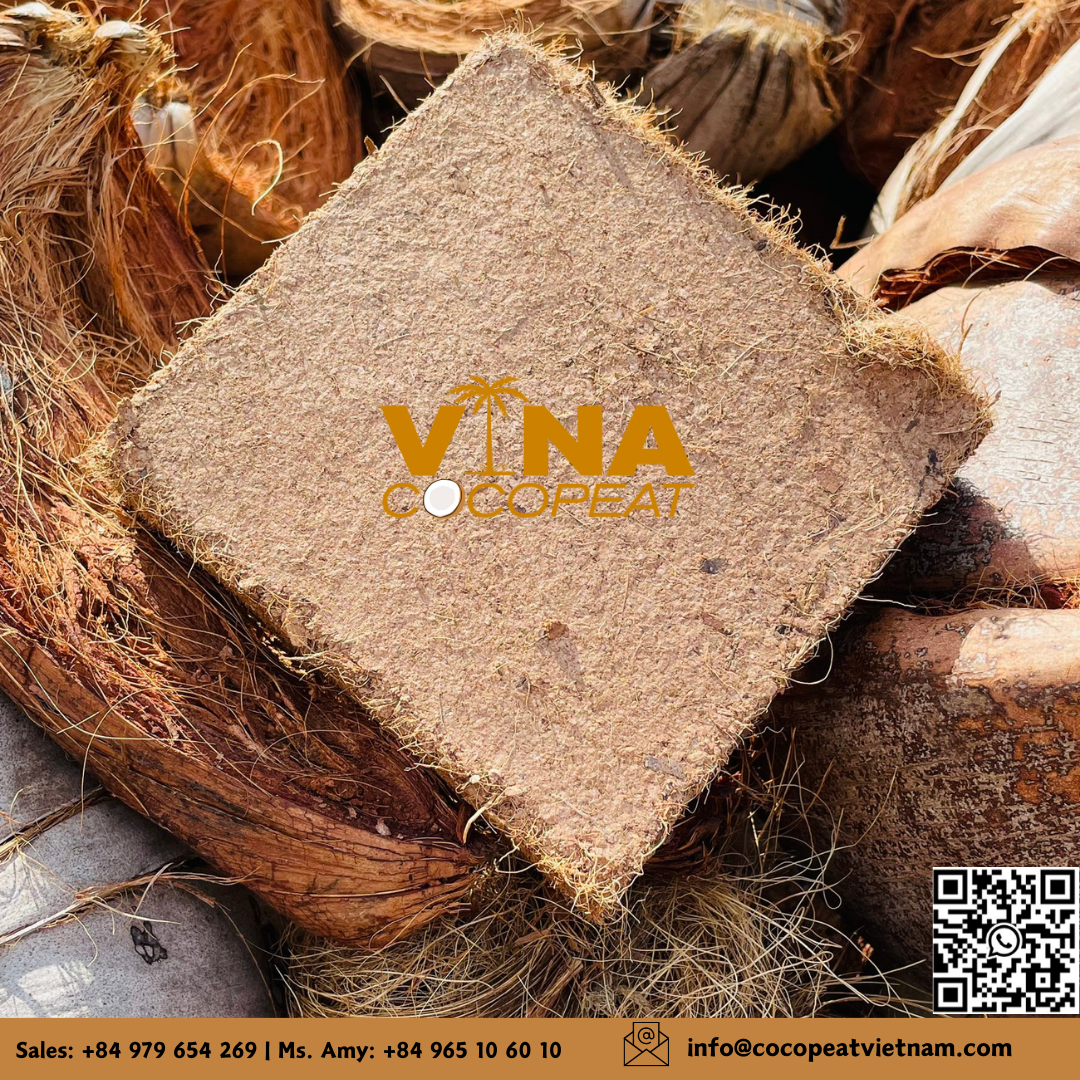
3. Coco Peat Block: Coco peat block, also known as coconut coir block, is a compacted block created from the fibrous remains of coconut husks that are left over after the long coir fibers are extracted. These blocks are commonly used in horticulture as soil amendments and growing mediums. The coir fibers are washed and dried before being compressed into workable blocks. When water is added, these blocks expand dramatically, forming a lightweight and extremely absorbent substrate ideal for plant development. The processing into small blocks makes them simple to handle, transport, and store in a variety of horticultural applications.
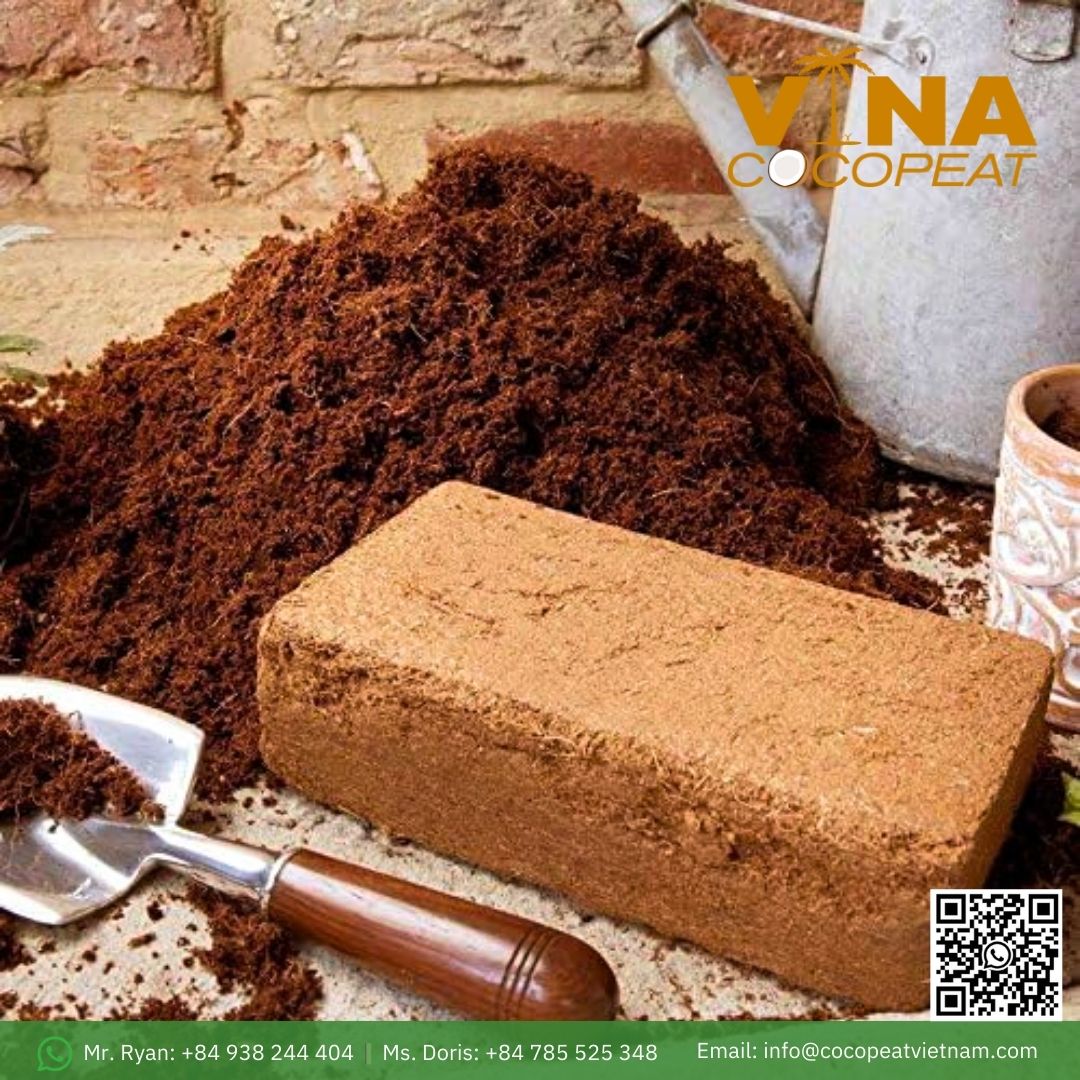
4. Coco peat Grow Bag Slabs: They are a highly efficient, environmentally friendly growing medium that may be used for a variety of plants. These slabs, made mostly of natural coconut coir fibers, are manually pressed, which results in a higher moisture content than machine-pressed grow bags. Coir slabs provide good drainage, aeration, and root support, making them an adaptable option for horticulture and hydroponics.
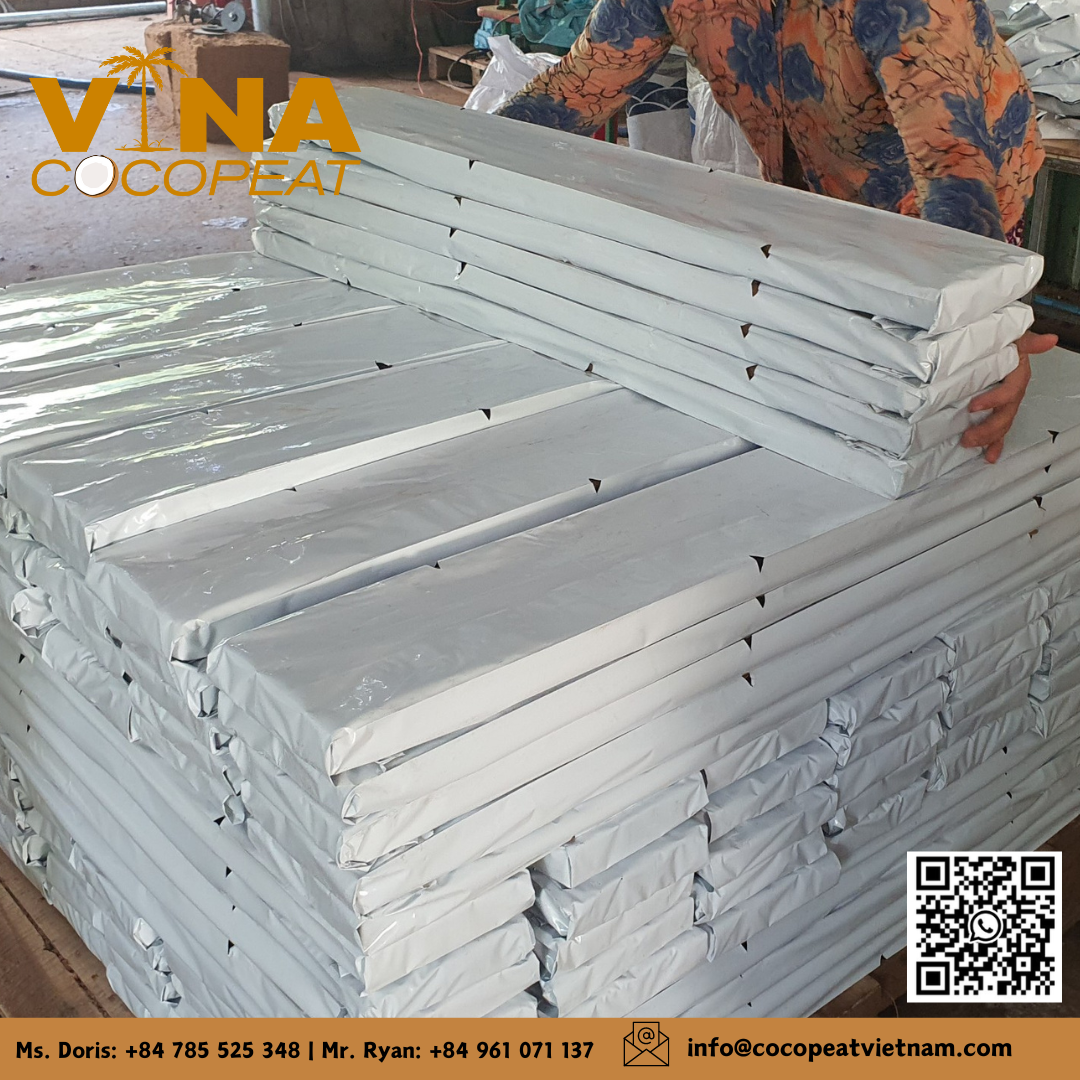
5. Coco peat Open Top: A planter bag is a flexible, fabric-based container used for gardening and plant culture. It is commonly used to cultivate a variety of plants, such as flowers, vegetables, herbs, and shrubs. Planter bags come in a variety of sizes and forms to meet the individual needs of different plants. Planter bags are a convenient and versatile gardening option, with advantages such as efficient aeration, drainage, and transportation, making them useful in a variety of plant growth scenarios. They are also easy to move around, allowing for flexibility in garden design and layout.
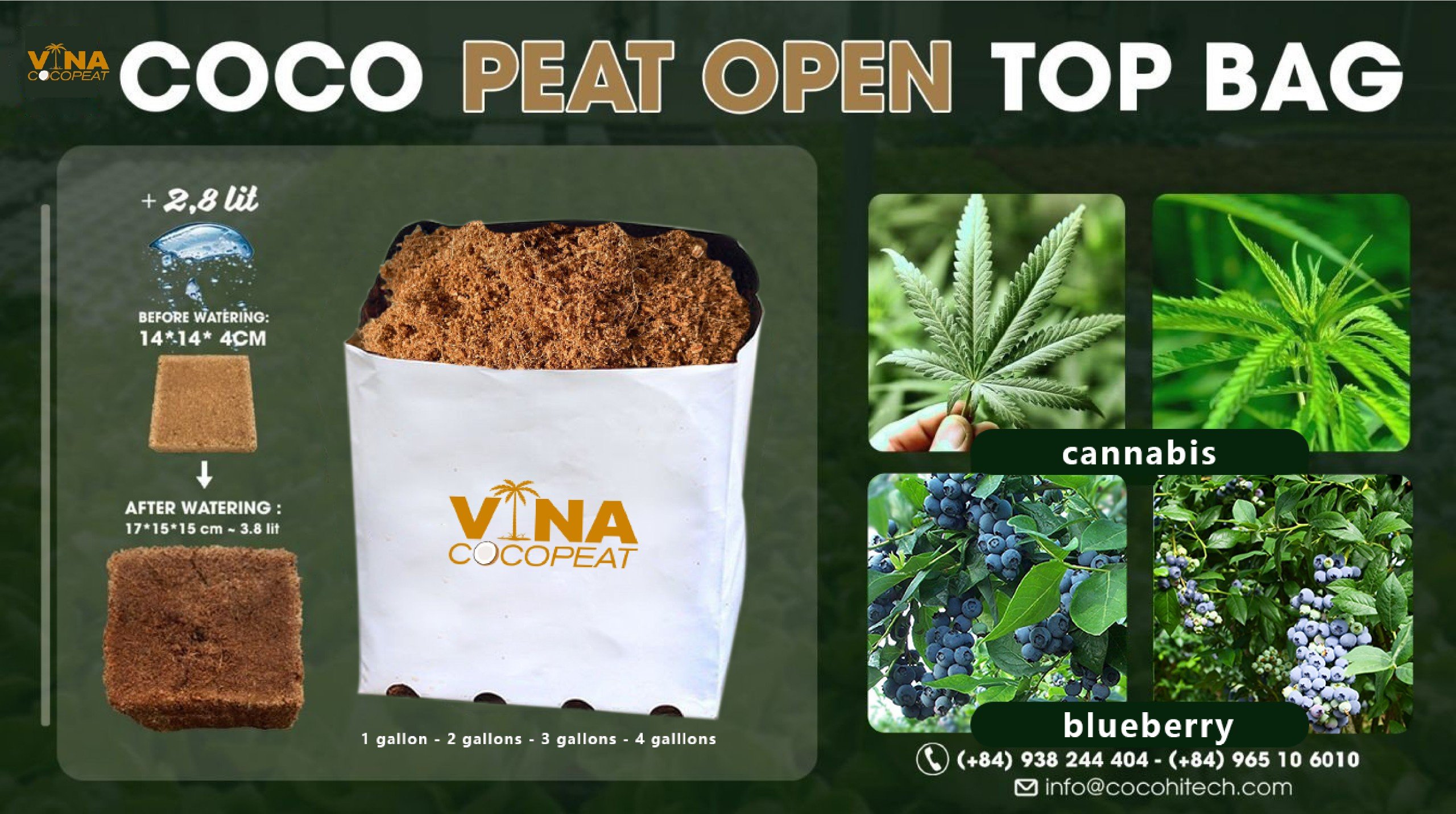
6. Coco Coir Pellet: Coir Pellets, made from coconut fiber, are a sustainable, environmentally friendly alternative to peat pots and pellets. They have a lower mold incidence, faster water absorption, and less watering. Compressed, they are ideal for sowing seeds or rooting cuttings, and are easy to use, resulting in healthier, faster-growing plants. They can also be directly planted into the ground, reducing transplant shock.
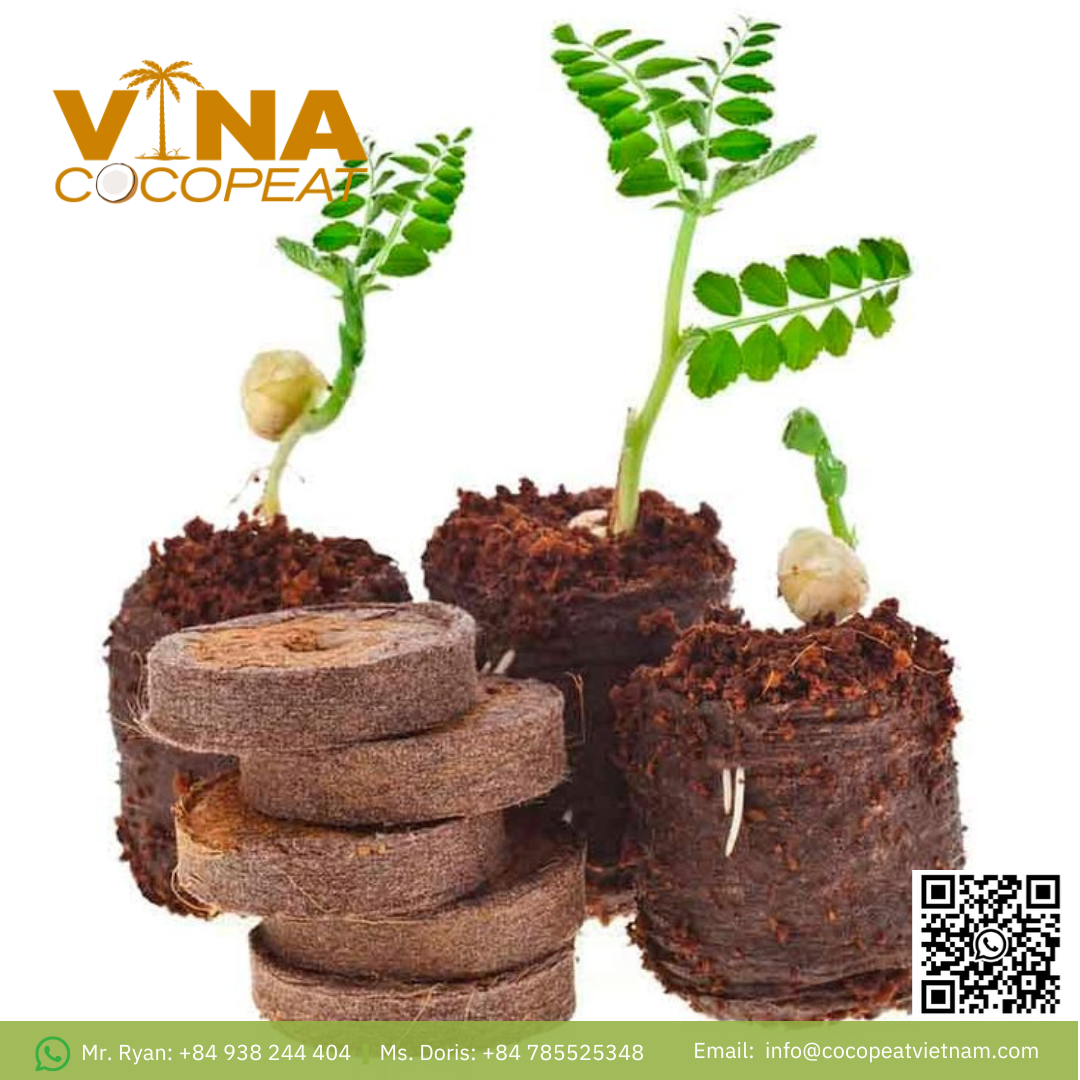
VINA COCO PEAT – The wonderful experience for you guys
At VINA COCO PEAT, we provide a wide range of coco coir-derived composting materials, including peat bricks, chips, and substrate mixes, etc.
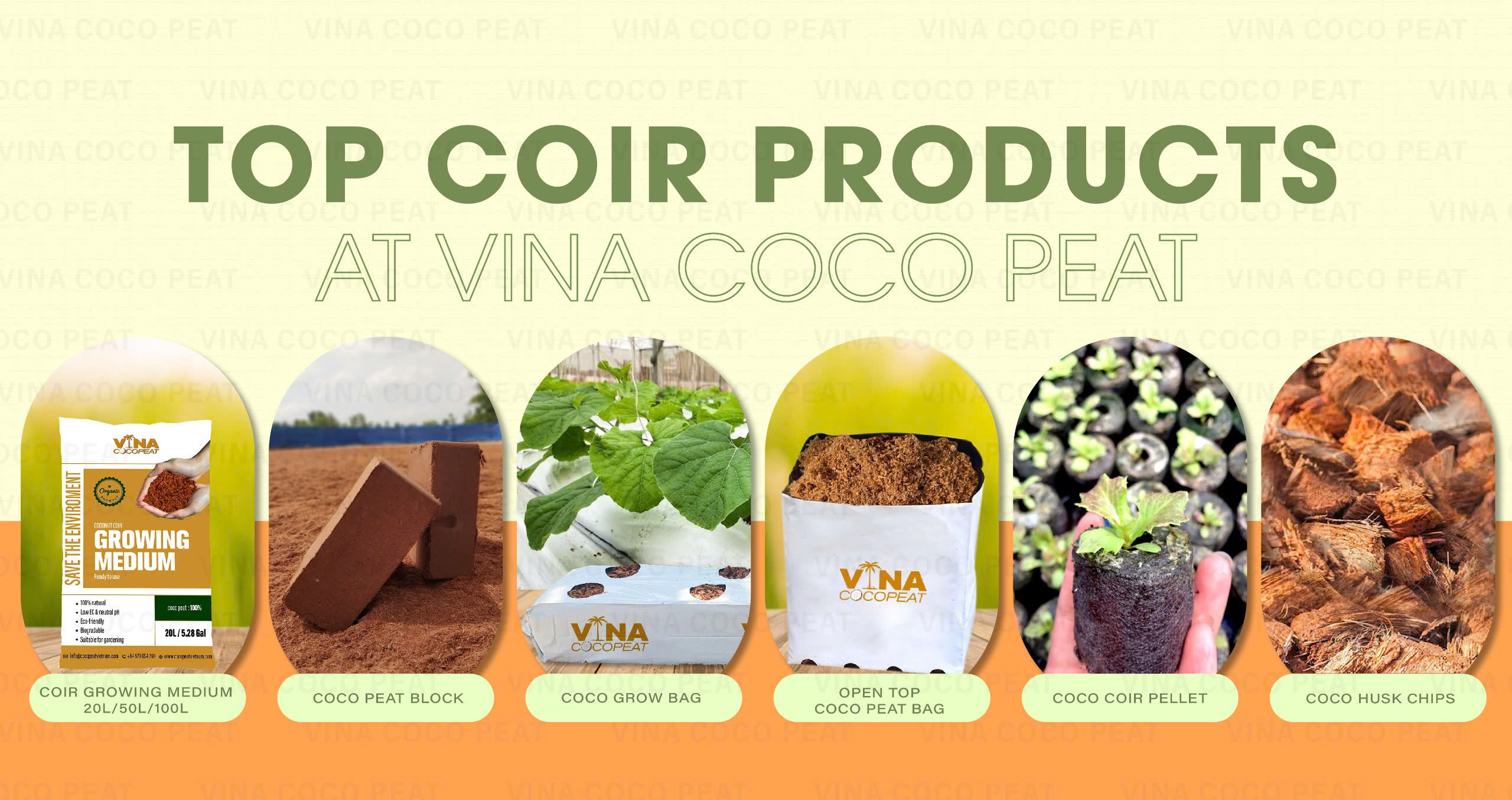
Contact VINA COCO PEAT if you are looking for coco peat suppliers in Vietnam.
Ms. Doris: +84 785 525 348 (ZALO, WHATSAPP, WECHAT, LINE)
Mr. Ryan: +84 961 071 137 (ZALO, WHATSAPP, WECHAT)
한국 영업 담당자: +84 969 273 598 (Ms. Lan)
中文: +84 397 317 401 (Ms. Vi)
Email: info@cocopeatvietnam.com – www.cocopeatvietnam.com
